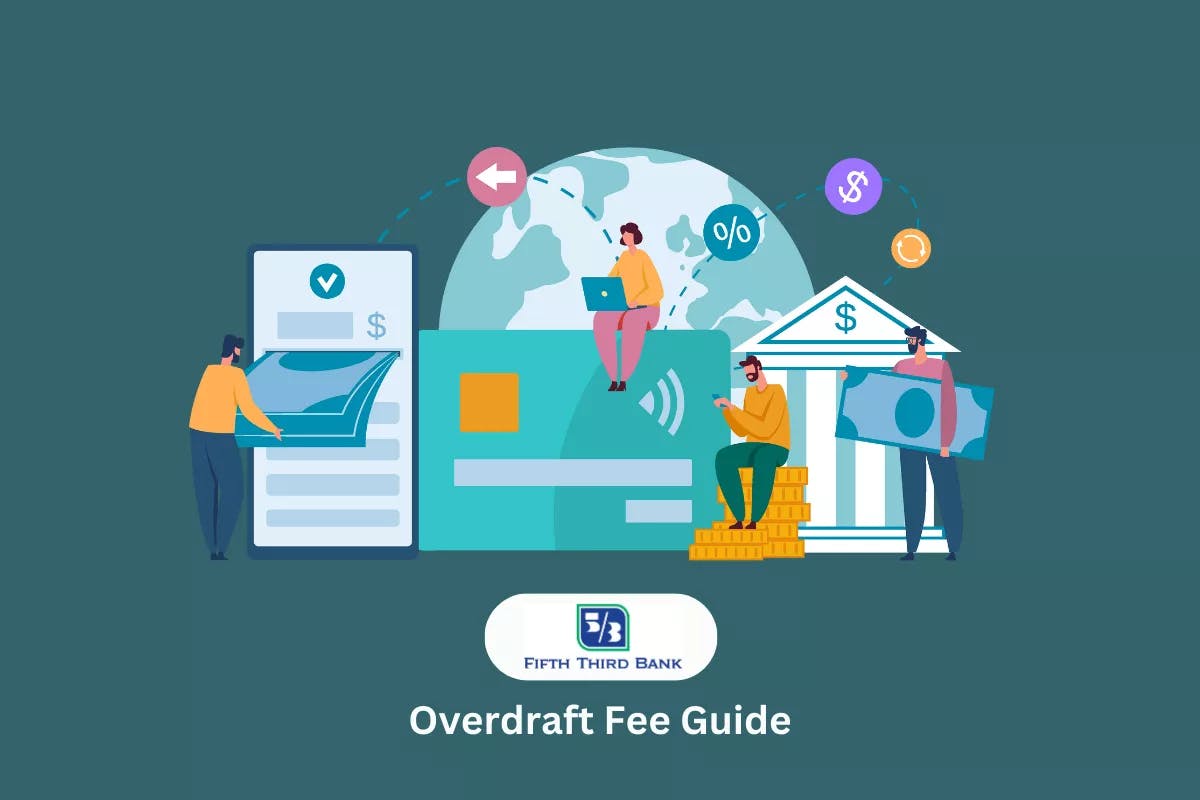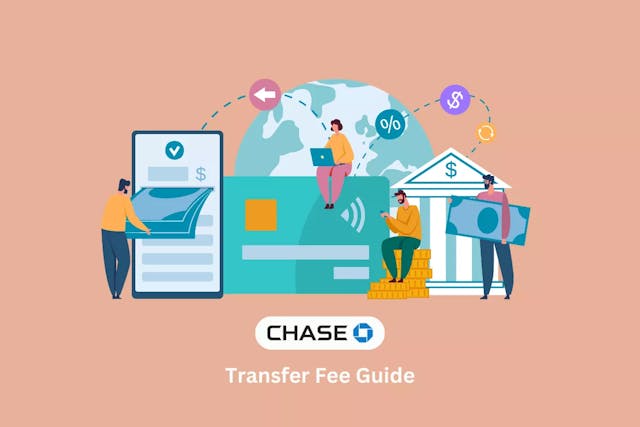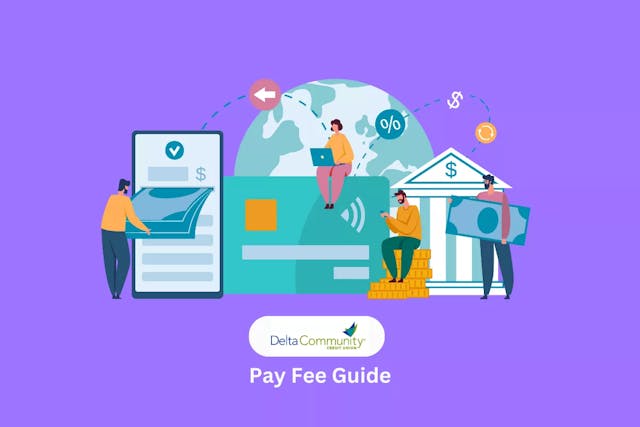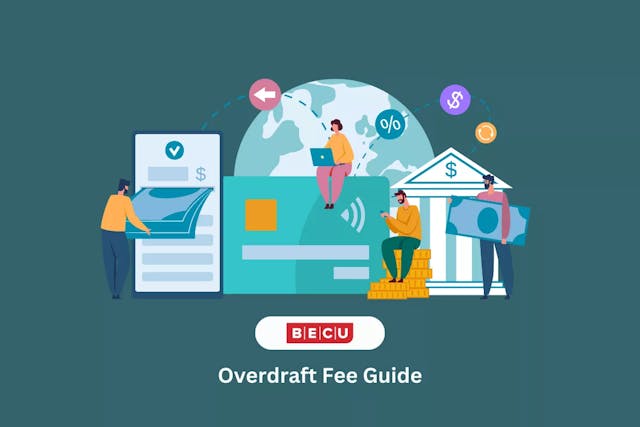What Is an Overdraft Fee?
Fifth Third Bank issues you an overdraft fee when you don’t have enough money in your account to complete a transaction but the bank pays for the transaction anyway. By covering for you, the bank allows your balance to fall into the negative, and they charge you a fee for spotting the transaction.
Transactions that can trigger an overdraft fee include:
- Checks or other transactions made using your checking account number
- ACH transactions
- Online or automatic bill payments (e.g. auto-pay utility bills, credit card payments)
- Recurring debit card transactions (e.g. gym memberships, streaming service subscriptions)
If you opt in, Fifth Third Bank can also cover other types of overdraft transactions, including ATM transactions and everyday, non-recurring debit purchases (e.g. gas, groceries). If you choose not to opt in and attempt to complete an ATM transaction or everyday debit purchase that would overdraw your account, the bank will simply decline the transaction and not issue you a fee.
Fifth Third Bank is not obligated to cover any transactions that overdraft your account, regardless of transaction type or overdraft protection status. The decision is ultimately at the bank’s discretion.
How Much Does an Overdraft Fee Cost at Fifth Third Bank?
Fifth Third Bank charges $37 per item that overdraws your account.
If your account is overdrawn by $5 or less at the end of the day, you will not incur a fee.
Related Fees
If you overdraft your account, a number of scenarios could occur.
- Overdraft fee
- Returned item fee
- Overdraft protection transfer fee
Overdraft fee
Overdraft fees most often occur when you are not opted into overdraft protection and the bank allows you to overdraft your account on checks, ACH transactions, online or automatic bill payments, and recurring debit card transactions.
Returned item fee
A returned item fee occurs when you make a purchase but there are not enough funds in your account to cover the transaction. Instead of covering for you, the bank will decline the transaction, or return the item unpaid. Returned item fees may also be referred to as insufficient funds fees or non-sufficient funds (NSF) fees.
Like a standard overdraft fee, Fifth Third Bank charges $37 per item that is returned unpaid. The bank will not charge you a returned item fee for ATM or everyday, non-recurring debit card transactions unless you’ve opted in, but can charge you a fee for:
- Checks or other transactions made using your checking account number
- ACH transactions
- Online or automatic bill payments
- Recurring debit card transactions
Overdraft protection transfer fee
Overdraft protection transfer fees most often occur when you are opted into overdraft protection and the bank allows you to overdraw your account on checks, recurring debit card transactions, ACH transactions, automatic bill payments, everyday debit purchases, or ATM withdrawals. Rather than a $37 overdraft fee, Fifth Third Bank will charge a $12 overdraft protection transfer fee if you are opted into the program.
To enable overdraft protection, you must link a qualified account so that the bank can transfer funds from one account to another in the event of an overdraft. Qualified accounts include:
- Savings or secondary checking account
- Line of credit
- Credit card
Special Considerations
Fifth Third limits the number of overdraft fees — including both overdraft fees and returned item fees — to five on a single day.
If you have a Fifth Third Momentum Checking account, you are entitled to the bank’s extra time perk, which allows you to transfer or deposit funds that would bring your account to at least $0 before midnight ET of the day that the overdraft occurred. By doing so, you can avoid the overdraft fee.
Opting into overdraft protection can give you peace of mind, as most of your transactions will be covered even if you don’t have sufficient funds in your account; however, there are many things to consider before opting in.
Overdraft protection is optional. In fact, your bank is required to ask whether or not you want to opt in. A study by the Consumer Financial Protection Bureau found that accounts opted into overdraft protection end up paying more in bank fees than accounts that aren’t opted in. Do your research before opting in so you can make an informed decision about whether or not overdraft protection makes sense for your spending habits and financial goals.
Remember: You can opt into or out of overdraft protection at any time.
Learn more about what you should know before opting into overdraft protection.
How to Avoid an Overdraft Fee
Overdraft fees are one of the most common charges detected on Cushion customers’ accounts, but there are small actions that you can take to avoid them:
- Keep an eye on your account balance and charges.
- Sign up for low-balance notifications.
- Carefully consider whether you should opt into overdraft protection.
Learn more about how to avoid an overdraft fee.
How to Get an Overdraft Fee Refund
While there are several ways that you can avoid overdraft fees, some might still fall through the cracks. If you get hit with one, remember there are ways to reclaim that money.
Here’s what you can do to increase your chances of success when you negotiate fees with your financial institution.
Prepare your information
Name, address, bank account number, and the fees that you’d like to negotiate.
Introduce yourself
“Hello. My name is , and I recently received an overdraft fee on my account. I’m contacting you to see if you would be willing to refund this fee.”
Have your points of leverage ready
Have you been financially affected by COVID-19? Is this overdraft a rare occurrence? Are you a loyal customer who has banked with Fifth Third Bank for an extended period of time? Do you have multiple accounts with the bank? Do you make regular deposits?
Be patient, persistent, and prepared not to get a refund every time
A little kindness goes a long way. You should remember that the representative that you’re working with likely didn’t write the rules on refunds. You also shouldn’t hesitate to press the issue if you initially hear “no” — that’s what your points of leverage are for. Success can depend on the representative that you speak with, so try calling back a few days later to speak with someone new.
Finally, you will unfortunately lose some negotiations. Try not to get discouraged, but do try to take the necessary steps to avoid overdraft fees in the future.
Learn more about how to get an overdraft fee refund.
Find Fifth Third Bank’s overdraft coverage specifications here.



